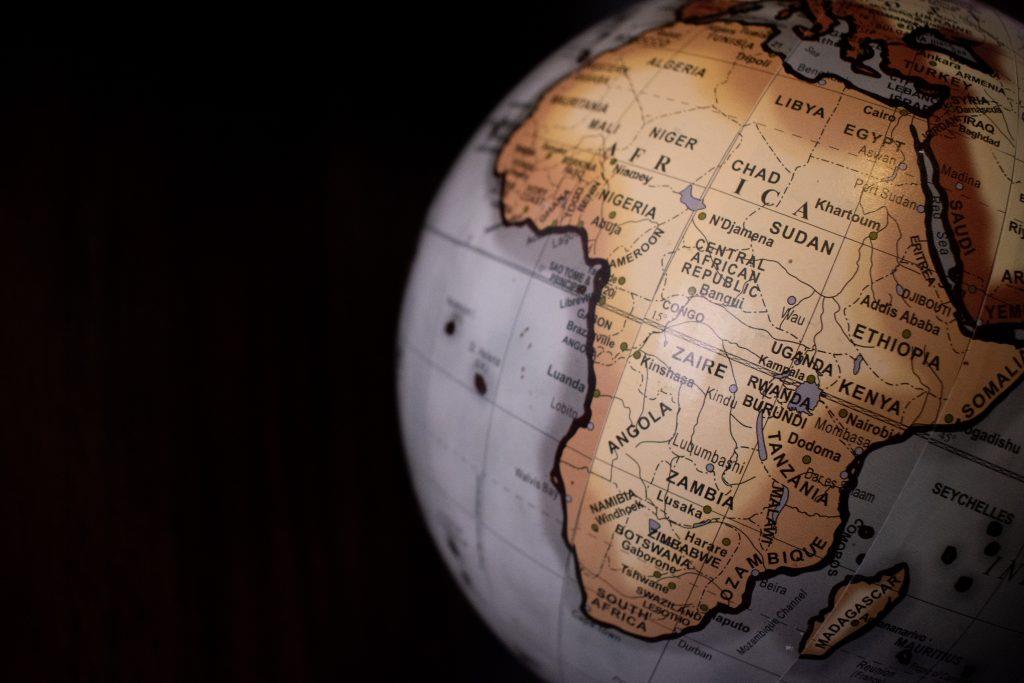(MENAFN- Nam News Network)

NEW DELHI (India), Jan 4 (NNN-DAILYNEWS) - TWENTY African countries have expressed interest in joining the Coalition for Disaster Resilient Infrastructure (CDRI) , a global initiative aimed at fortifying infrastructure against climate-induced disasters.
The development signifies a turning point in Africa's efforts to safeguard its infrastructure and economic growth amid the looming threats of climate change.
Across Africa, the evidence of climate vulnerability is undeniable. From train derailments caused by excessive heat warping railway tracks to devastating floods that disrupt schools, businesses and homes, the continent's infrastructure often buckles under the strain of extreme weather conditions.
In Namibia, for instance, flooding at Wernhil Mall caused widespread disruption, while in northern regions, children are frequently forced to study under trees and tents during the rainy season.
These stories are emblematic of the challenges faced by African nations, where climate change compounds existing infrastructure weaknesses.
Founded in 2019 by Indian Prime Minister Narendra Modi during the UN Climate Action Summit, the Coalition for Disaster Resilient Infrastructure (CDRI) aims to build resilient infrastructure systems that can withstand and adapt to natural disasters.
According to the CDRI director of partnership and governance, Alpana Saha who addressed a group of East and Southern African journalists during a familiarisation visit to India, said the coalition boasts 40 member countries and seven key partner organisations, including the
United Nations Development Programme (UNDP)
and the World Bank.
She said CDRI provides technical expertise, training and funding to help nations develop sustainable infrastructure.
“The coalition is designed to help member countries address vulnerabilities in their infrastructure systems and prepare for future climate risks,” she said.
She said that the process for joining involves a country endorsing the coalition's charter and appointing a focal ministry to coordinate efforts.
Saha said Africa currently spends an estimated 8.7 billion US Dollars annually on infrastructure risk management, primarily in response to flooding.
She said joining the CDRI offers African nations a pathway to reduce these costs through targeted interventions, including technical Assistance, expert guidance on designing and implementing climate-resilient infrastructure.
She further mentioned that funding and grants are also part of the support provided by CDRI, offering financial resources to upgrade vulnerable infrastructure and implement innovative, climate-resilient solutions.
“We provide training programmes for local officials in disaster risk financing, urban planning and resilience strategies,” she added.
These efforts are already making an impact, Saha said, saying in Ghana, for example, CDRI has launched initiatives to manage urban flooding, while in Mauritius, the focus has been on resilience planning for tourism infrastructure.
Additionally, she said 148 officials from 29 African countries have undergone specialised training through India's Indian Technical and Economic Cooperation (ITEC) programme, covering critical sectors such as power, transport and telecommunications.
CDRI's history underscores its commitment to addressing the growing costs of climate-related disasters. By 2018, global disasters were causing annual losses of over 165 billion US Dollars, a figure projected to rise without targeted interventions.
CDRI's mission is to mitigate these risks by promoting infrastructure systems that can recover quickly and function effectively even during disasters.
Operating through international collaboration, CDRI facilitates the sharing of best practices, innovative technologies and policy frameworks tailored to the unique needs of its members.
Its goals align with the United Nations Sustainable Development Goals (SDGs), particularly Goal 9 (Industry, Innovation and Infrastructure) and Goal 13 (Climate Action).
Saha said that for African nations, engaging with the Coalition for Disaster Resilient Infrastructure (CDRI) could unlock a range of benefits extending beyond disaster preparedness.
She outlined these benefits, starting with economic stability, emphasising that proactive measures could significantly reduce the financial burden of disaster recovery.
She also noted that infrastructure resilience, another key advantage, ensures uninterrupted access to essential services such as education, healthcare and transportation.
Saha further explained the importance of sustainable development, pointing out the value of building systems that can support rapid urbanisation while mitigating environmental impacts.
“Partnerships that foster knowledge-sharing and collective problem-solving across the continent are another critical benefit,” she added.
The interest of 20 African nations in CDRI reflects a growing recognition of the need for urgent action. With climate change accelerating, the importance of resilient infrastructure cannot be overstated.
As the coalition continues to expand its footprint in Africa, the collaboration promises to not only strengthen the continent's infrastructure but also its resolve to confront the challenges of a changing climate head-on.
For a continent teeming with potential, initiatives like CDRI offer a lifeline ensuring that development is not derailed by disasters but propelled by resilience and innovation. - NNN-DAILYNEWS
MENAFN04012025000200011047ID1109053984
Legal Disclaimer:
MENAFN provides the information “as is” without warranty of any kind. We do not accept any responsibility or liability for the accuracy, content, images, videos, licenses, completeness, legality, or reliability of the information contained in this article. If you have any complaints or copyright issues related to this article, kindly contact the provider above.